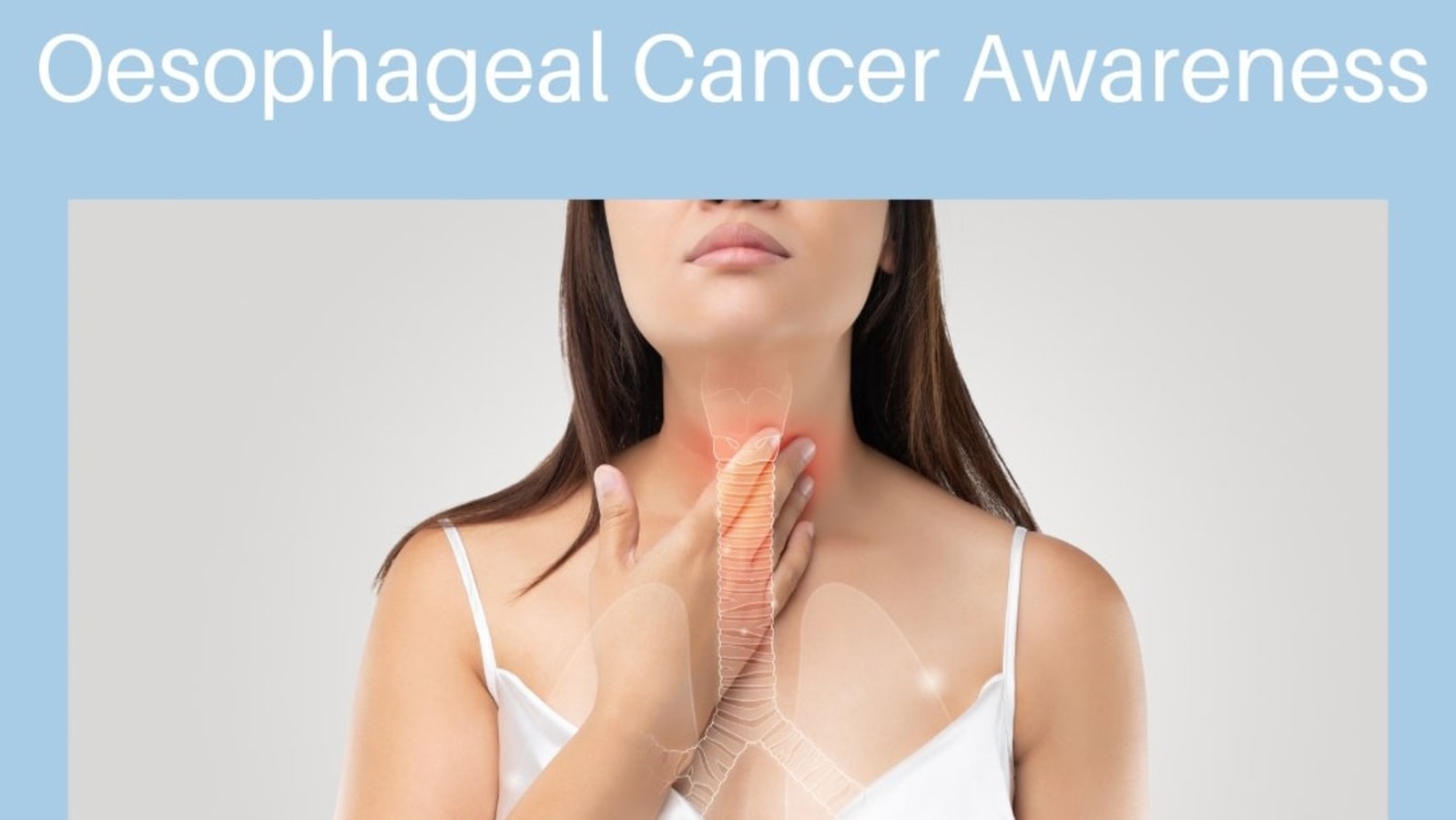[ad_1]
February is Oesophageal Cancer Awareness Month and for the uninitiated, esophageal cancer begins in one’s esophagus which is a long, hollow tube connecting the throat and the stomach. It is a known fact that the esophagus helps move the food you swallow from the back of your throat to your stomach to aid digestion.
Esophageal cancer usually starts in the cells that line the inside of the esophagus, can happen to anyone and is seen anywhere in the esophagus. In an interview with HT Lifestyle, Dr Suhas Aagre, Consultant Medical Oncologist and Hemato-Oncologist at Asian Cancer Institute, revealed, “The risk factors for this type of cancer are gastroesophageal reflux disease (GERD), smoking, obesity, alcohol consumption, exposure to chemicals, family history, swallowing problems, drinking hot liquids, and not eating enough fruits and vegetables.”
He highlighted, “The symptoms of this cancer are dysphagia, unintentional weight loss, chest pain, pressure or burning, worsening indigestion or heartburn, cough, and hoarseness. You should not delay the treatment once you notice these symptoms.” As for the complications, he said, “Inability to seek treatment at the right time can lead to life-threatening complications. One will encounter issues such as obstruction of the esophagus and the food and liquid will not be able to pass through your esophagus. Moreover, advanced esophageal cancer can cause pain and one will be unable to do his/her daily activities with ease. Esophageal cancer can also lead to bleeding. It is better to treat this cancer without any delay.”
Talking about the diagnosis, he said, “The various methods to diagnose this type of cancer are CT scan, Esophageal endoscopic ultrasound, biopsy, and esophagogastroduodenoscopy (EGD). You will be suggested the right kind of treatment after the diagnosis is confirmed.” For the treatment, he pointed out, “It will depend on the stage and grade of cancer. One will be advised to undergo surgery, radiation therapy, chemotherapy, endoscopic laser therapy, targeted therapy, and even immunotherapy.”
Suggesting how to prevent this cancer, the health expert advised, “If you smoke, speak to the doctor about measures for quitting. Medications and counselling can help you to cut down on smoking. It is also a good idea to stay away from alcohol. Don’t forget to include fresh fruits, vegetables, whole grains, pulses, and lentils in the diet. Try to avoid junk, processed, and canned food. It will be better for you to exercise daily and maintain an optimum weight. Report any abnormal changes to the doctor without any hesitation. Timely treatment is key to managing cancer and improving the quality of life.”
[ad_2]
Source link


